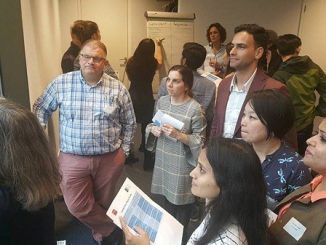
Power distance
The subordinate-superior relationship has been engraved in Asian cultures for a long time. People are educated to show high respect towards the elderly and those in higher social positions. This perception has both up and down sides. On the one hand, it helps people to have an optimistic attitude towards other’s capacity for leadership. However, being too aware of power distance could make people forget their own voices. This is completely different in the Dutch culture, in which all individuals in society are equal in right, responsibility and their own interest as well as benefit. They are free and confident in speaking out their own thoughts. Vice versa, Dutch people also welcome voices from everyone, regardless of their positions. Therefore, this is what Asian students can learn from and put effort to apply into their work-life situations.
Individualism
It is clear to say that Asian countries have maintained a highly collectivistic culture where people act in the interests of the others, rather than for themselves. Meanwhile, Dutch culture are well-known for a loosely-knit social framework in which individuals just need to focus on their own benefit. This might be one of the contributing factors to the conflicts in groupwork that has a mix of Dutch and Asian people. Since Dutch people are very focused on the individual rather than the group, they find it hard to listen and perceive other opinions.Therefore, it takes time for both cultures to understand and get along with each other. The mix of Dutch and Asian culture could be a perfect combination as Asians can learn to be more expressive as an individual, and Dutch people can learn to be more amiable with other people.





Leave a Reply